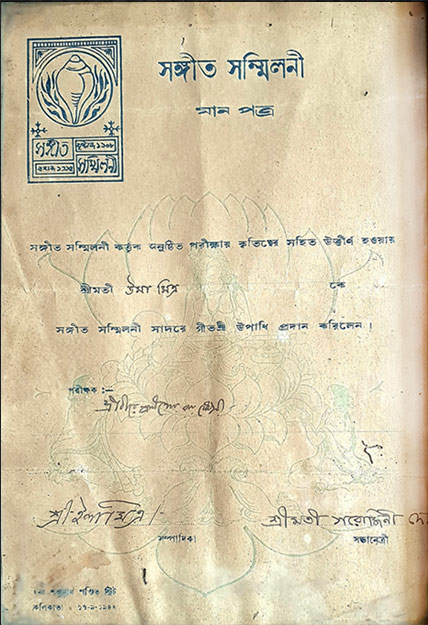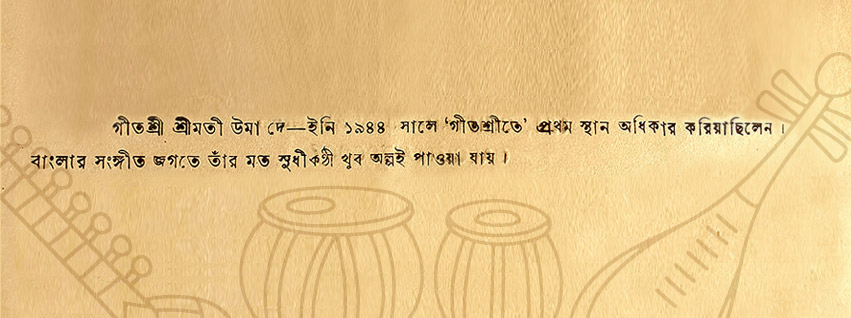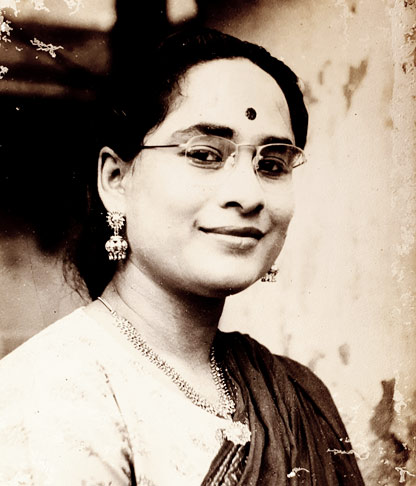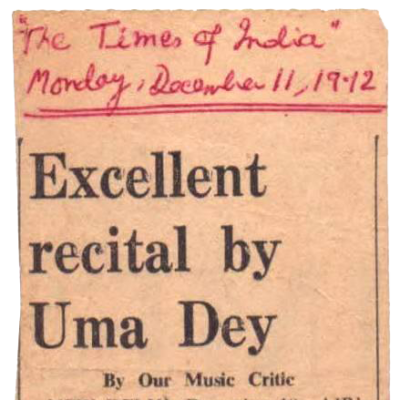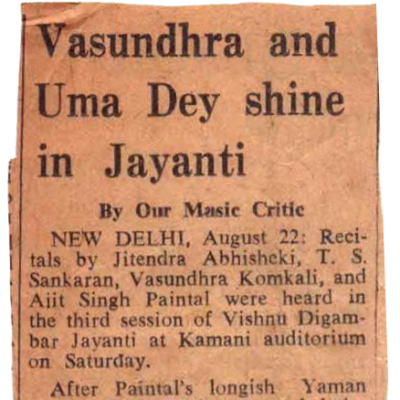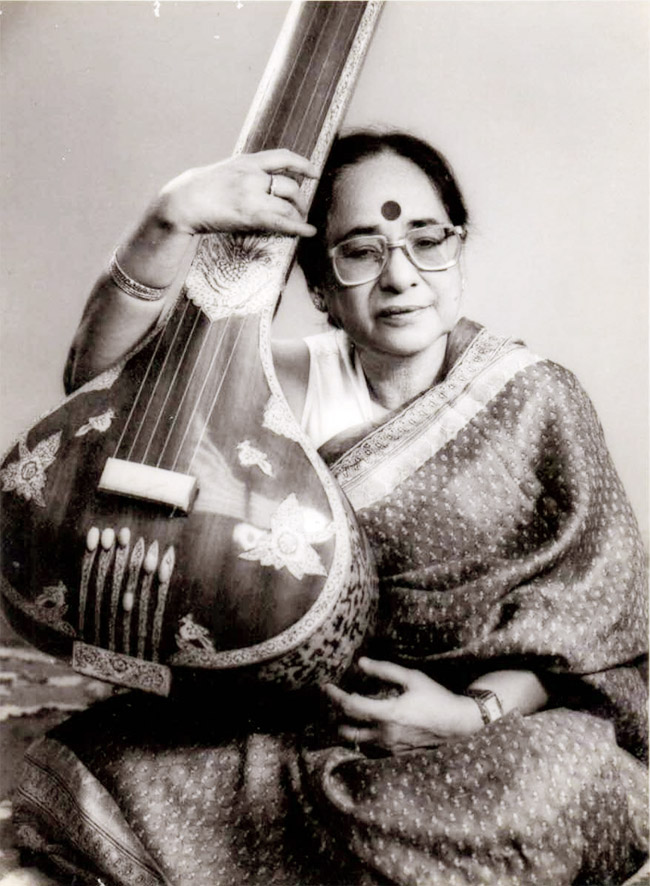
Life
The year was 1934. The who’s who of the Indian classical music industry had gathered in Allahabad to take part in the prestigious All India Music Conference. The competition segment had a galaxy of stars as its jury members – Ustad Alauddin Khan, Ustad Fayaz Khan, Ustad Abdul Karim Khan, Ustad Inayat Khan, Ustad Hafeez Ali Khan, Ustad Ahmed Jan Therakua, Pandit Vishnudigambar Palushkar, Parbat Singh and other stalwarts. But the cynosure of all eyes was a 13-year-old girl from Kolkata, who won the seniors competition with effortless ease – she was put into that category by a clerical mistake. Thus a star was born, under the tutelage of such classical music legends as Vishmadeb Chattopadhyay and Girijashankar Chakraborty.
Born into a highly aristocratic family, Uma De was a prodigy. While the legendary Bengali playwright/actor, Sisirkumar Bhaduri, was her father’s friend, Girish Ghosh, who’s often described as the father of modern Bengali theatre, was her father’s uncle. It was during one of Bhaduri’s productions that little Uma heard a song sung by celebrated vocalist GauharJaan. At home, she reproduced the entire song, just as it was sung by Gauhar!
At Shovabazaar Rajbari, where her mother belonged, she was initiated into the world of classical music by Acharya Vishmadeb Chattopadhyay at the tender age of six. Later, she became the youngest and much loved disciple of Girijababu.
Her maternal uncle, Haritkrishna Deb, renowned Indologist and a close friend of Gurudev Rabindranath Tagore, introduced the little girl to the Bard. Gurudev was stunned by her talent. He told her, ”Come with me to Shantiniketan, (where) I will teach you music and you will teach me music.” Gurudev even watched an entire film holding her on his lap at Prashanta Mahalanobis’s residence (later turned into the Rabindra Bharati University campus). The letters Gurudev wrote to Uma De remained a source of supreme inspiration till her last breath.


